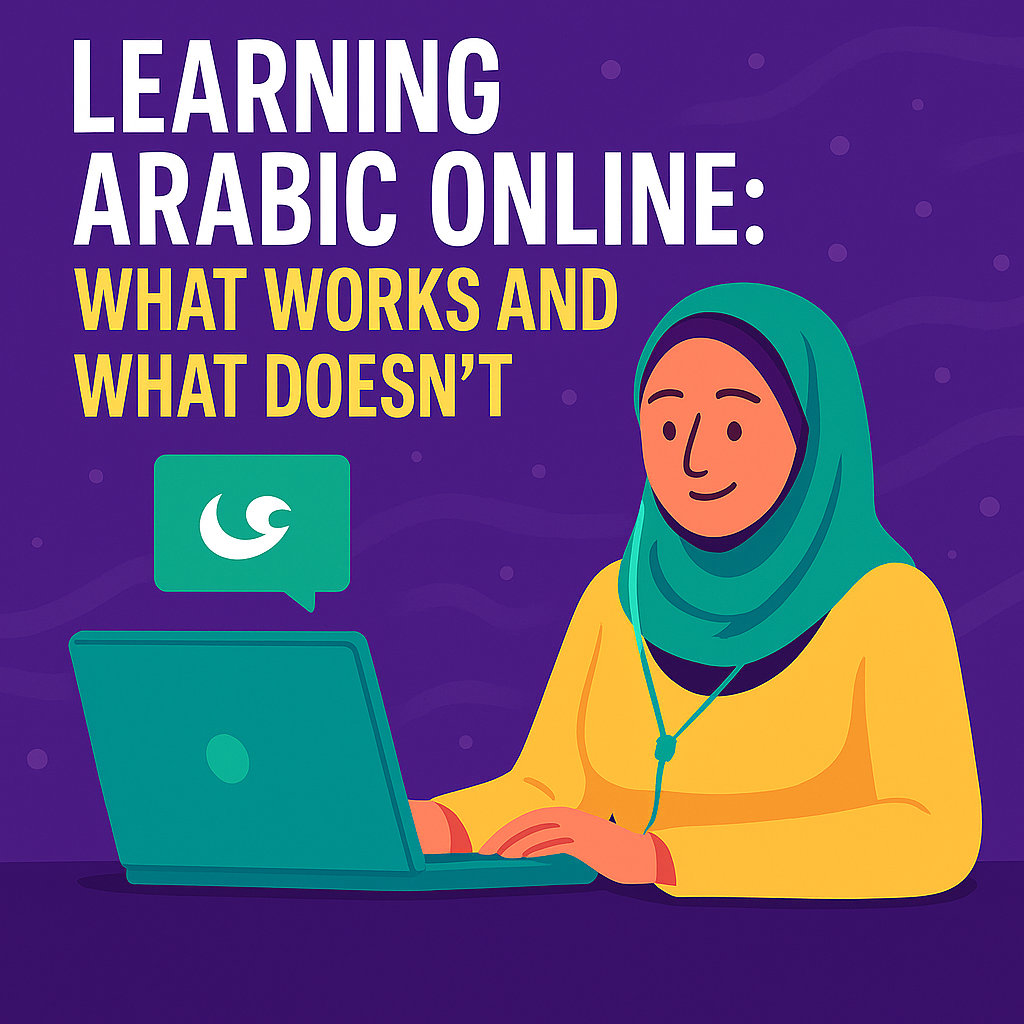Before we dive in, choose your preferred language for learning: Choose your language
Real Talk: Arabic Is Unique
Let’s get this out of the way: Arabic is not like any language you’ve learned before.
It has:
- A different alphabet,
- A rich root-based word system,
- Formal and dialectal versions,
- And sounds that don’t exist in English, Spanish, or even Russian.
But that’s also what makes it so exciting.
What Most People Get Wrong
When learning Arabic online, it’s easy to fall into some common traps:
1. Relying too much on apps.
Apps are fun and useful for vocab or script practice. But they don’t teach grammar in depth or guide you through real conversation.
2. Avoiding native texts and media.
Yes, it’s hard. But waiting until you’re “ready” often means never starting. Exposure matters early on.
3. Focusing only on Modern Standard Arabic (MSA).
MSA is essential, especially for reading and formal contexts. But real-life conversations? They happen in dialects. That’s why we teach both.
4. Studying without goals.
Are you learning Arabic for business, travel, Quran, or just interest? Your path should reflect your purpose.
What Actually Works Online
At Levitin Language School and Start Language School by Tymur Levitin, we help students learn Arabic in a way that’s structured, goal-based, and personalized.
Here’s what makes the difference:
1. Real Teachers with Real Methods
Self-study has limits. You need a guide who can correct your pronunciation, help you build patterns, and keep you on track.
Take Sumera, one of our Arabic teachers. She speaks Arabic and English, teaches both Quran and Modern Arabic, and knows how to adapt to your pace.
Meet her: Sumera – Arabic Language Instructor
2. Cultural and Functional Learning
Arabic isn’t just vocabulary lists. It’s context, habits, and worldview. Our lessons integrate culture from the start.
3. Balance Between MSA and Dialects
We help you understand both written and spoken Arabic. Whether you need Levantine, Egyptian, or Gulf dialects, we tailor your plan accordingly.
4. Interactive Practice
Speaking, listening, writing, and reading — all in balance. Plus, we keep lessons engaging and flexible. Learning shouldn’t feel like punishment.
Who This Is For
- Beginners who want to start smart
- Adults preparing for travel, work, or religious study
- Children and teens learning with curiosity
- Anyone tired of random apps and YouTube rabbit holes
Want to Go Deeper?
If you’re wondering why a personal tutor makes all the difference, check out our previous article:
Why Learning Arabic with a Private Tutor Can Change Everything
And if you’re ready to start, visit our Arabic learning page:
Study Arabic at Levitin Language School
Author: Tymur Levitin
Founder, director and lead teacher at Levitin Language School and Start Language School by Tymur Levitin
© Tymur Levitin














